Feeding Britain’s Wildlife Guests - From Hedgehogs to Swans
Britain’s gardens, parks, and waterways are home to some truly charming wild visitors - and it’s not just birds that benefit from a bit of extra help.
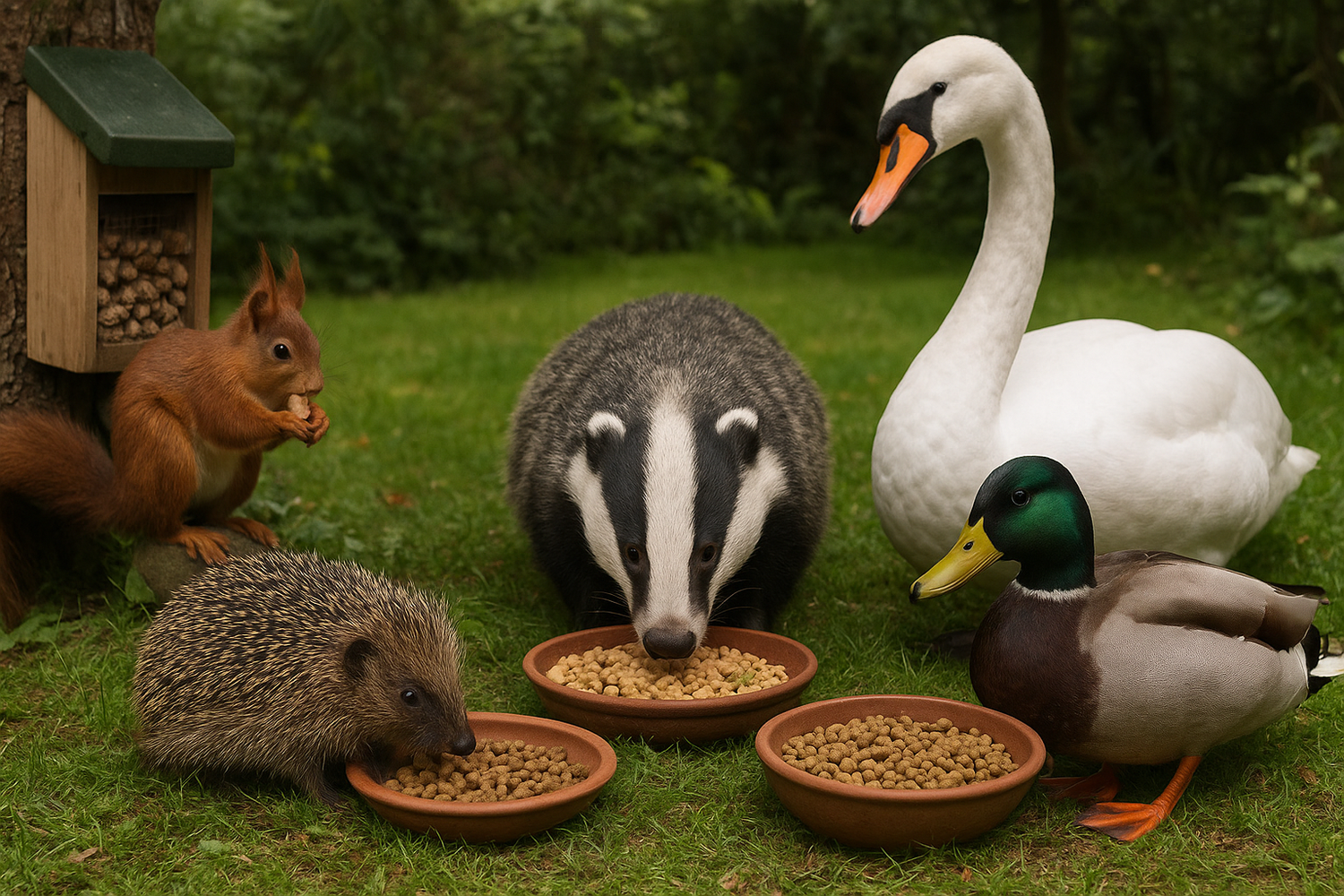
Hedgehogs, squirrels, badgers, swans, and ducks all appreciate a safe, nutritious snack, especially when natural food is scarce. Choosing the right food - and feeding it in the right way - can make a real difference to their health and wellbeing. Haith’s, with decades of experience producing clean, high-quality wildlife food, offers plenty of products that are perfect for these species.
Hedgehogs
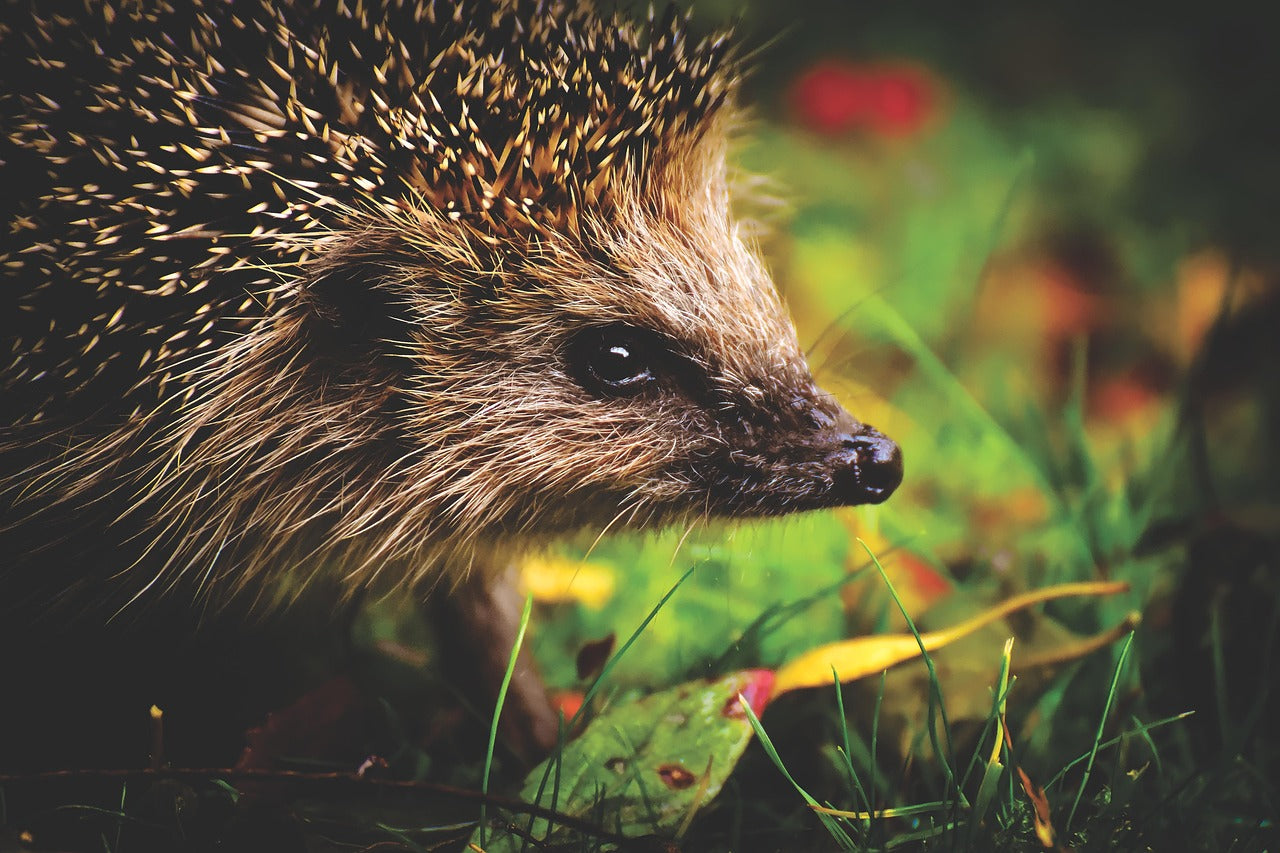
Hedgehogs are much-loved garden visitors, particularly during spring, summer, and autumn. They are nocturnal insectivores, so their natural diet includes beetles, caterpillars, and worms. Unfortunately, habitat loss and reduced insect numbers mean many hedgehogs need an extra helping hand.
-

What to feed
- Specialist Hedgehog Food - Haith’s Hedgehog Food is a balanced, crunchy mix containing meat and cereal ingredients to mimic their natural diet and provide essential energy.
- Dried mealworms (in moderation) - A tasty occasional treat, but always offer alongside a balanced food to avoid nutritional imbalances.
-

What to avoid
- No bread or milk - These can cause serious digestive upset.
- No salty or sugary snacks - Human food is not suitable.
-

Feeding tips
- Put food out at dusk, ideally in a shallow dish.
- Place it in a quiet, sheltered spot to reduce disturbance.
- A shallow dish of fresh water is vital -hedgehogs can easily become dehydrated.
Squirrels
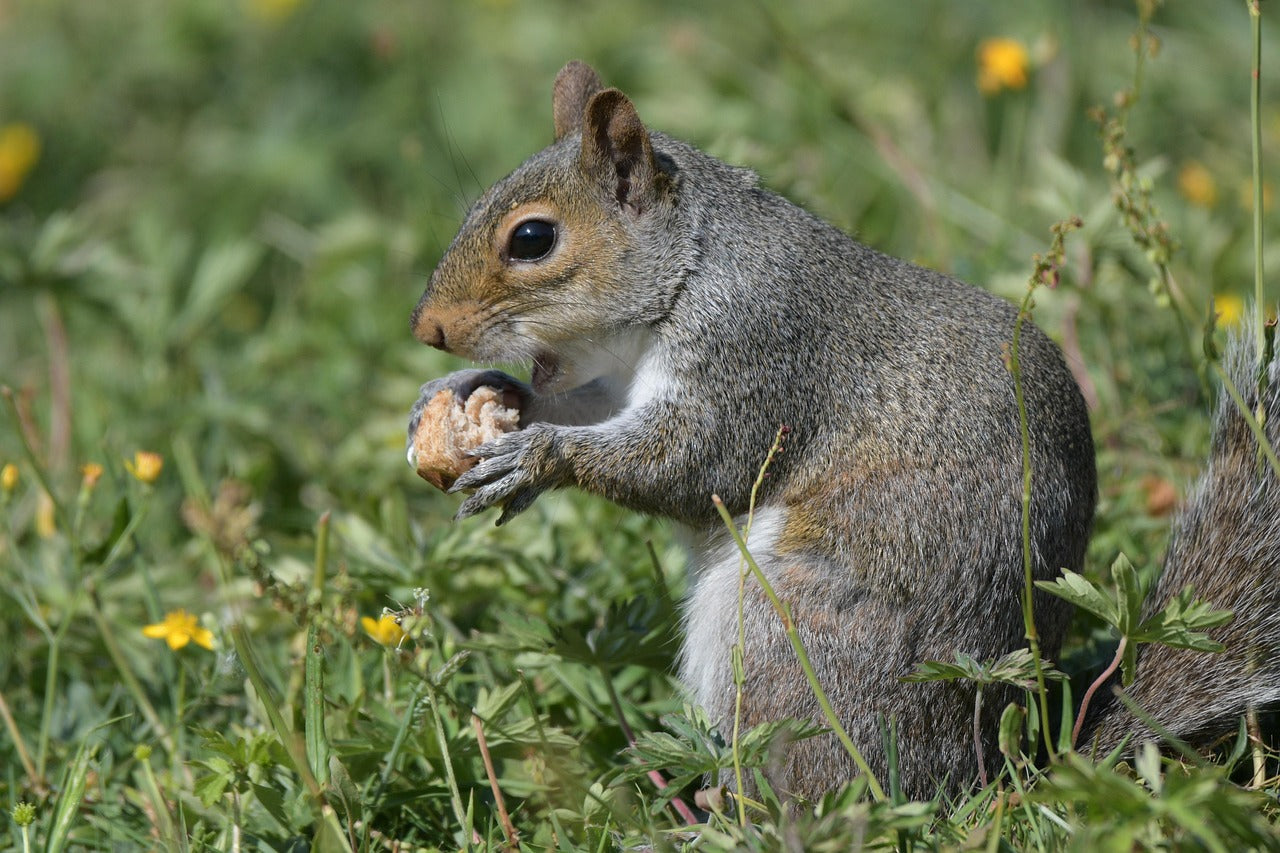
Grey and red squirrels are active, curious, and opportunistic feeders. They’re most often seen in parks and gardens with mature trees, but they’re not shy about visiting feeders.
-

What to feed
- Monkey Nuts (peanuts in shells) - Haith’s Aflatoxin-Tested Peanuts are safe and ideal for squirrels, either whole or still in their shells for extra enrichment.
- Specialist Squirrel Food - A mix of maize, peanuts, sunflower seeds, and other high-energy ingredients designed for their needs.
- Sunflower seeds - Black sunflower or sunflower hearts are also a firm favourite.
-

Feeding tips
- Use squirrel feeders - these are robust boxes with a lifting lid, keeping food dry and giving squirrels a fun challenge.
- Avoid overfeeding - too much can deter them from foraging naturally.
Badgers
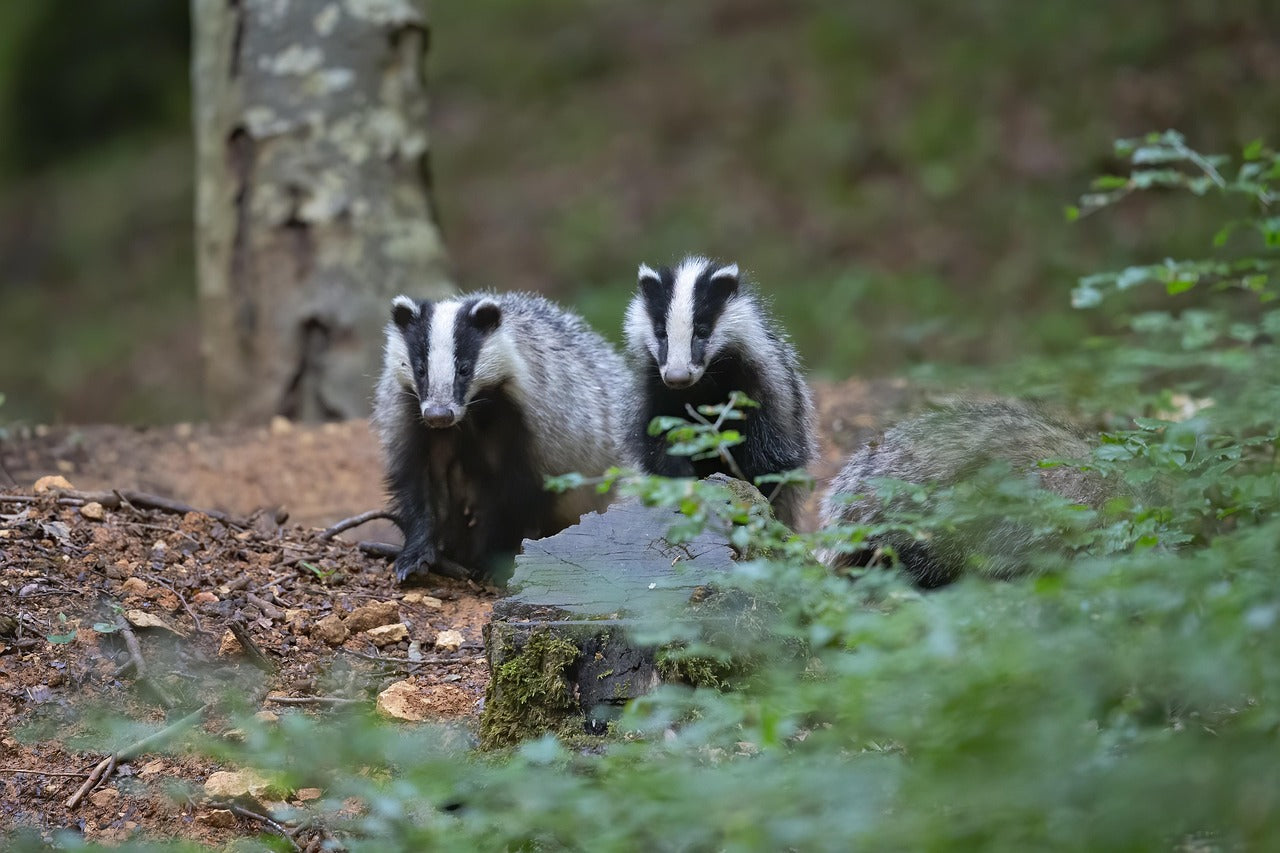
Badgers are nocturnal omnivores with a varied diet - earthworms, fruit, insects, and small mammals make up much of their natural menu. As their habitats become more urbanised, supplementary feeding can help them through lean months, especially winter.
-

What to feed
- Specialist Badger Food - Haith’s Badger Food contains peanuts, groats and wheat.
- Chopped fruit and vegetables - Apples, pears, and carrots are good additions.
- Unsalted peanuts - Provide protein and healthy fats, but keep portions modest.
-

Feeding tips
- Feed at ground level, ideally in the same safe, quiet spot each night.
- Keep water nearby, especially in dry weather.
- Offer small portions to prevent waste and avoid attracting pests.
Swans
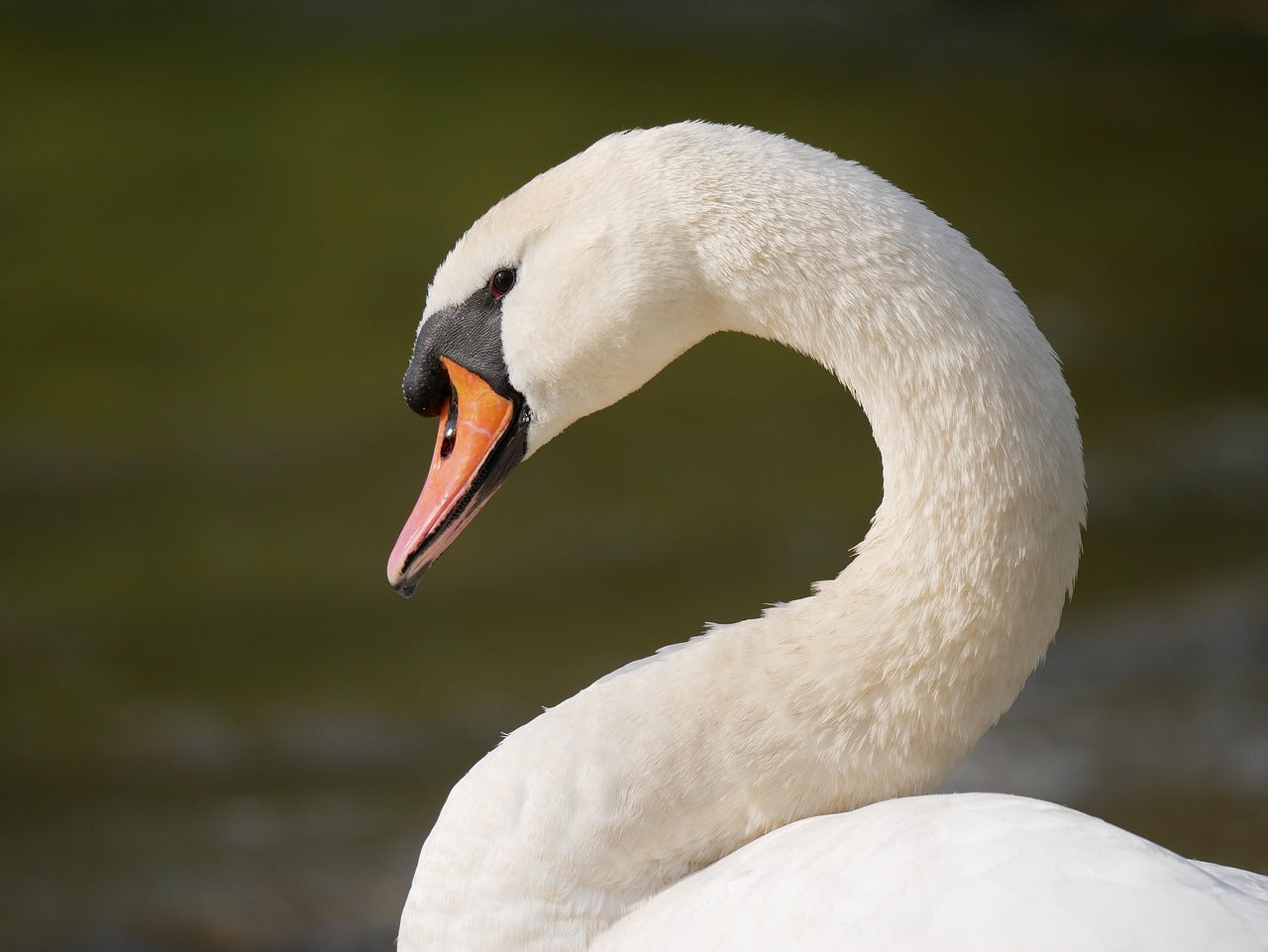
Swans are graceful waterfowl that benefit from the right type of supplementary food, particularly in winter or when natural vegetation is in short supply. Feeding them correctly is important for their health - and for protecting their habitat.
-

What to feed
- Swan and Duck Food - Haith’s Swan & Duck Food is specially formulated with
- Fresh leafy greens - Chopped lettuce or spinach can be a healthy bonus.
-

What to avoid
- No bread - Bread can cause malnutrition and pollute waterways.
- No processed food - Crisps, biscuits, and human leftovers are unsuitable.
-

Feeding tips
- Throw small handfuls onto the water’s surface rather than piling food on the bank.
- Avoid feeding in areas with heavy boat traffic or predators.
Ducks
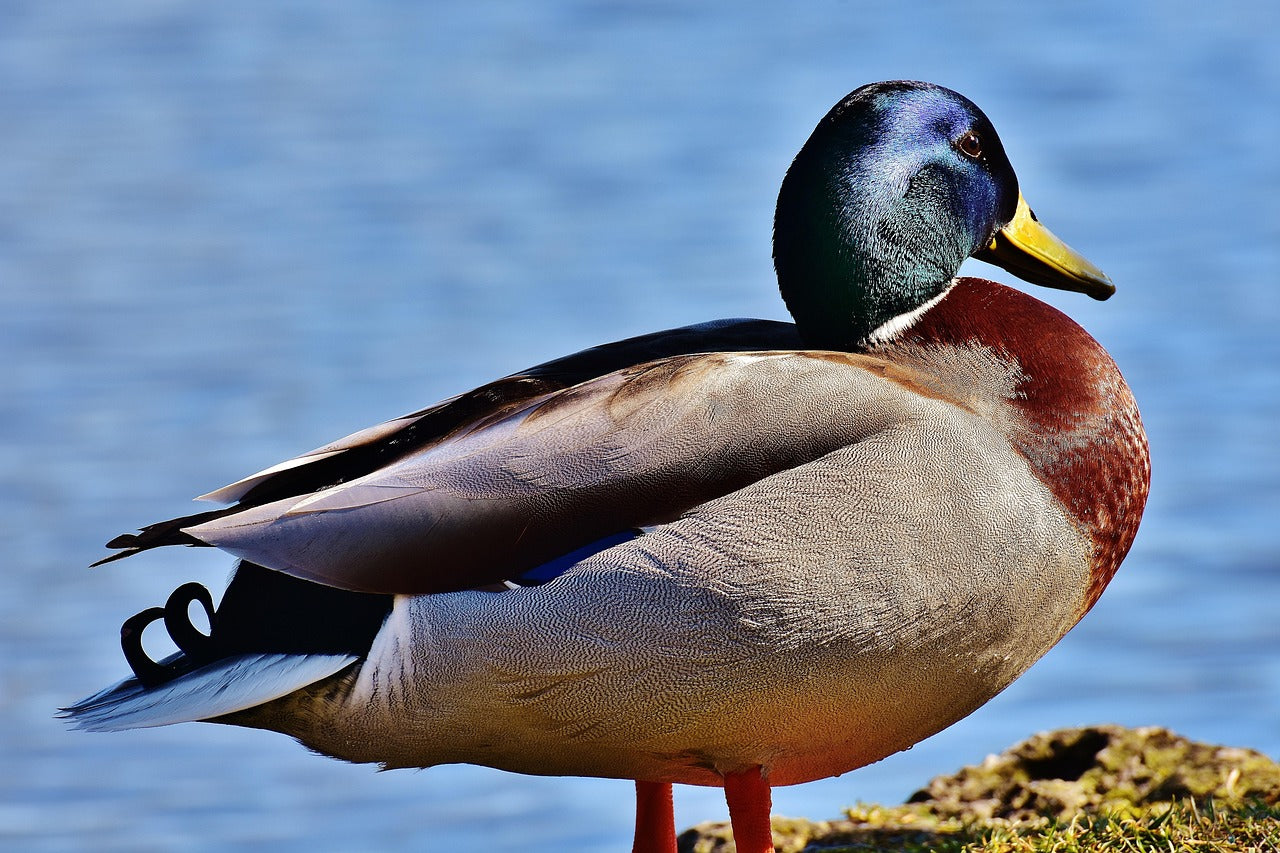
Ducks share many feeding needs with swans but can be more opportunistic, often approaching humans for handouts. Responsible feeding helps them stay healthy.
-

What to feed
- Swan and Duck Food - A mixture of grains and cereals.
- Grain mixes - Suitable for waterfowl feeding from the shore.
-

Feeding tips
- Feed little and often - overfeeding encourages crowding and disease spread.
- Keep an eye out for signs of illness; avoid feeding if there’s an outbreak of avian disease locally.
General Wildlife Feeding Advice
-
Keep it clean
Whether you’re leaving food in a hedgehog feeding station or scattering grain for ducks, hygiene is key. Haith’s food is SuperClean™, meaning dust and debris are removed before packing - but your feeders and feeding areas still need regular cleaning to prevent disease.
-
Feed responsibly
Wild animals should never become dependent on handouts. Supplement their natural diet rather than replacing it, and always adjust feeding to the season.
-
Provide fresh water
All wildlife needs safe drinking water - shallow dishes for hedgehogs, ground-level bowls for badgers, and clean, ice-free ponds or troughs for waterfowl.
Haith’s Wildlife Range at a Glance
Here’s a quick reference for some of Haith’s most popular wildlife products:
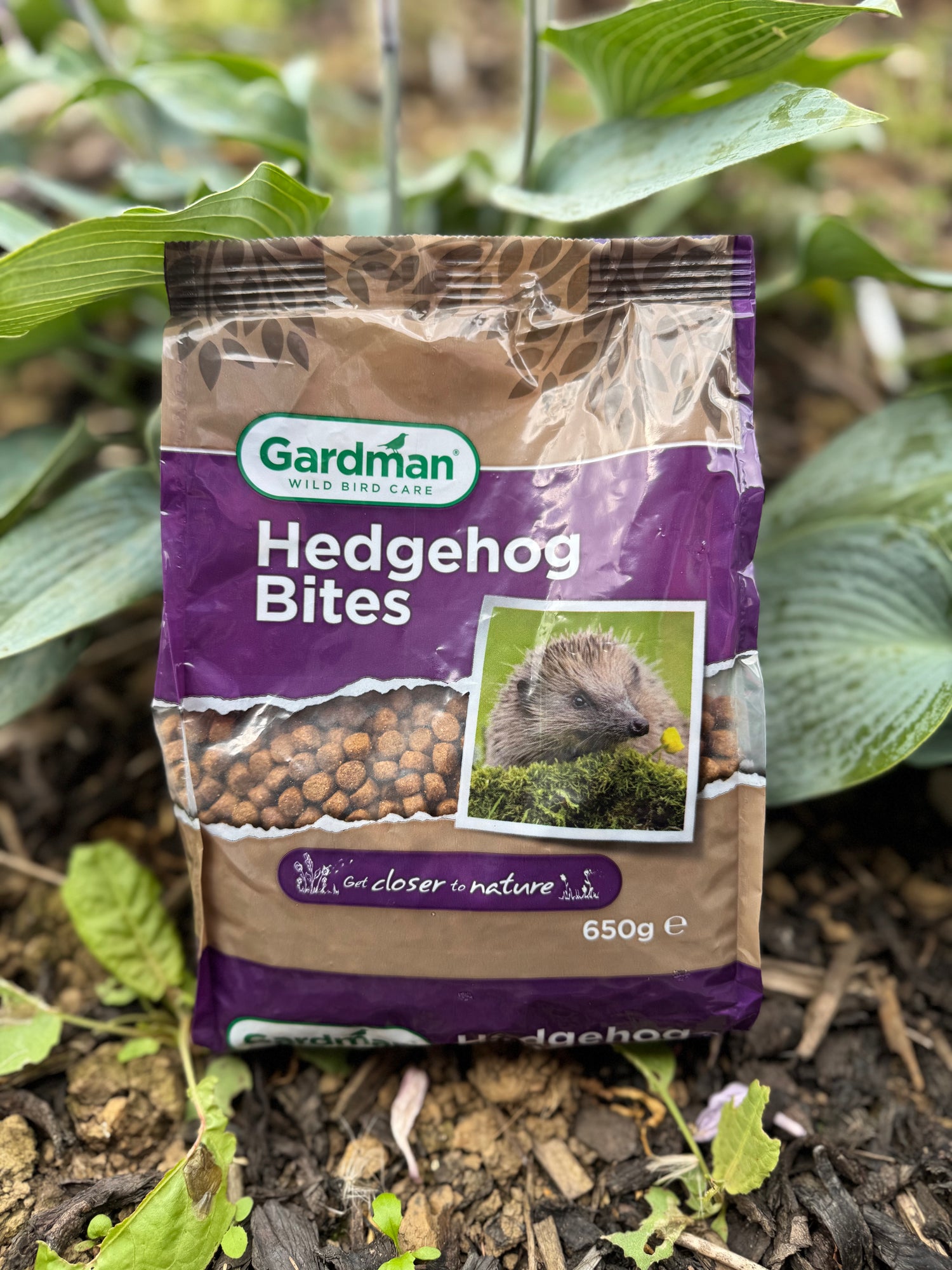
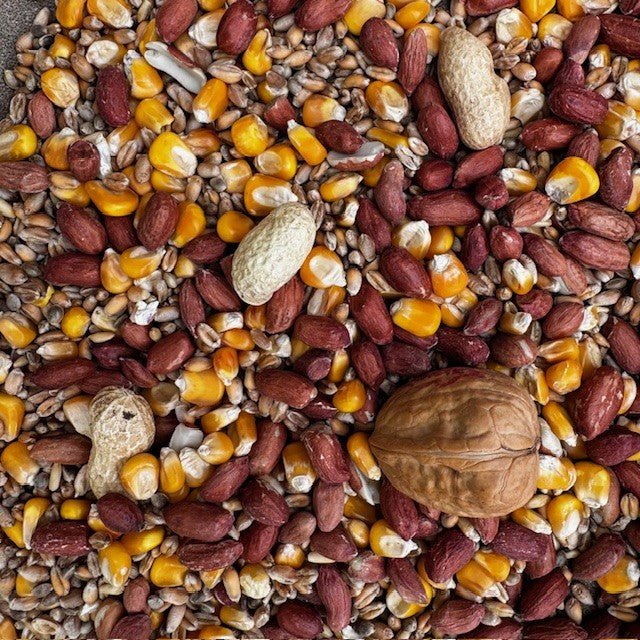
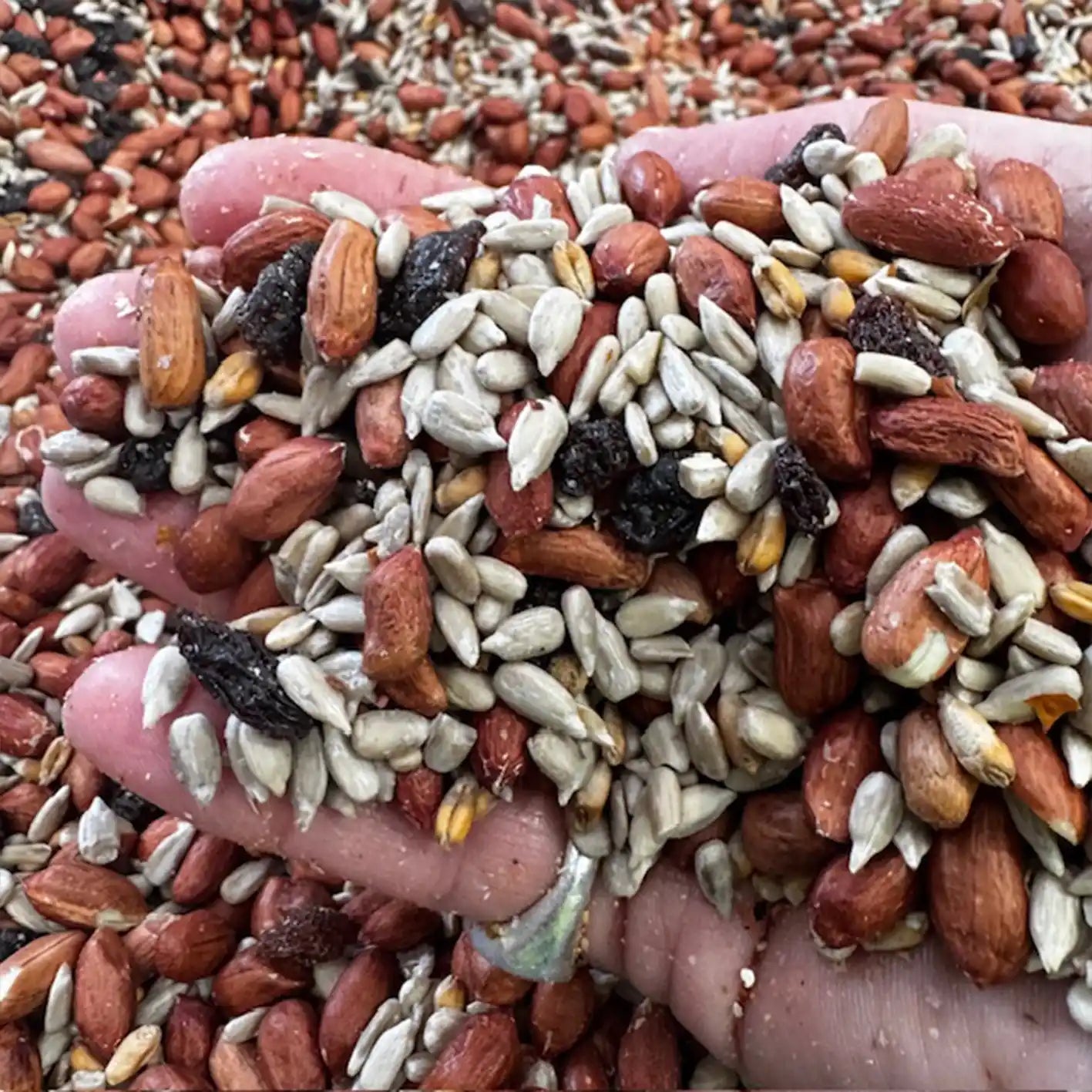
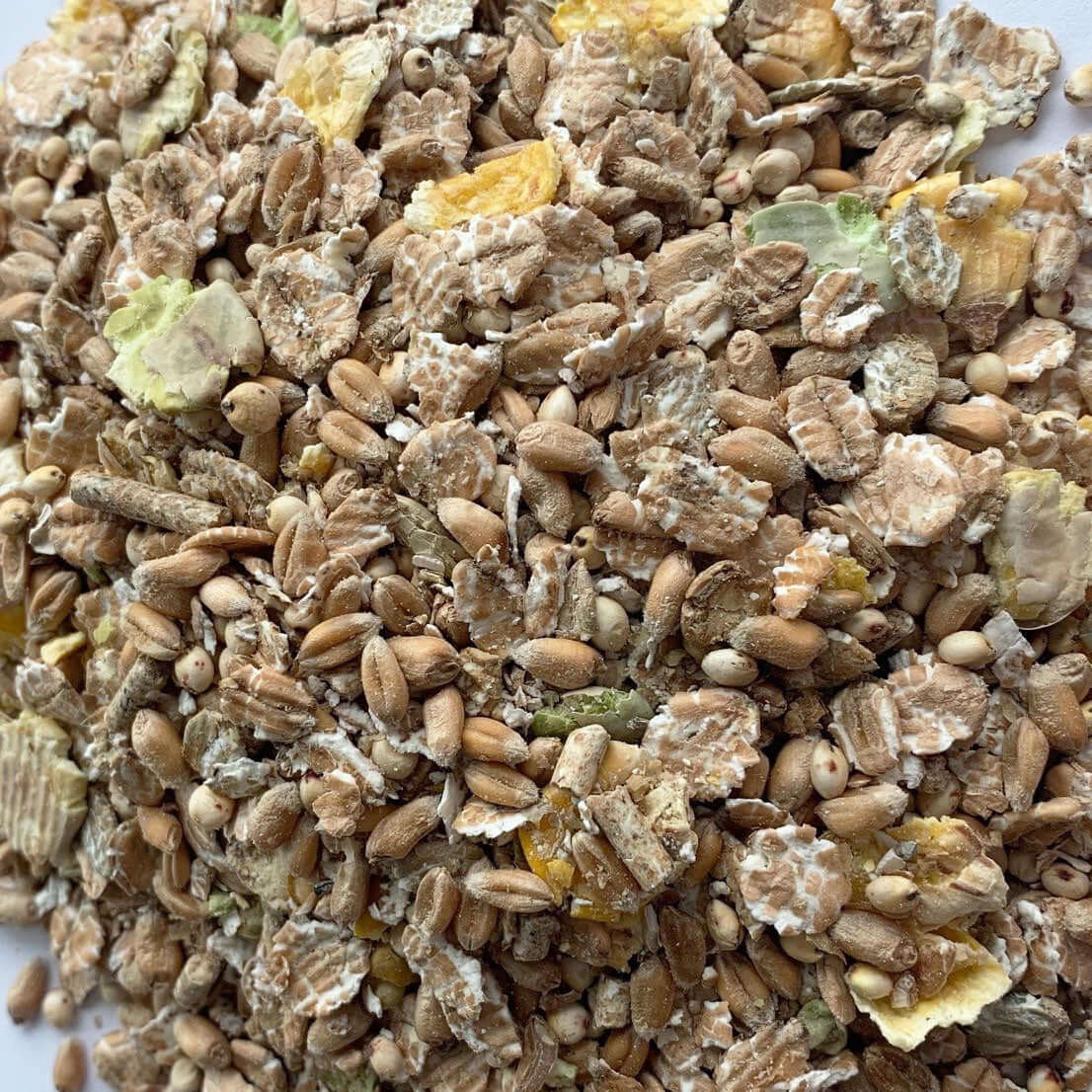

The reward of feeding wildlife
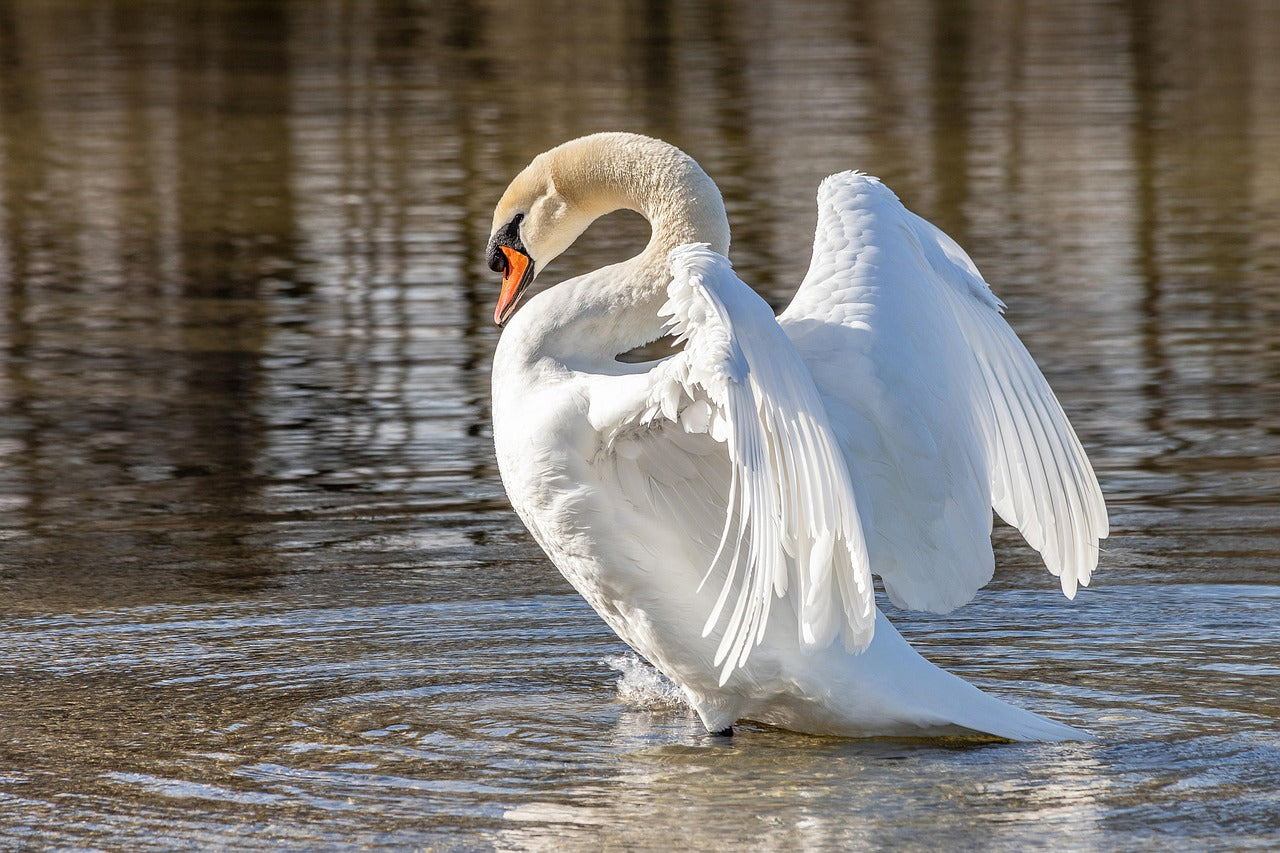
Feeding wildlife isn’t just about helping animals - it’s about connection. Watching a hedgehog quietly crunching under the hedge, a squirrel flipping open its feeder lid, or a family of swans gliding in for a snack brings nature closer to home. By choosing safe, species-appropriate food from trusted suppliers like Haith’s, you can make sure your wild visitors stay healthy - and keep coming back.











